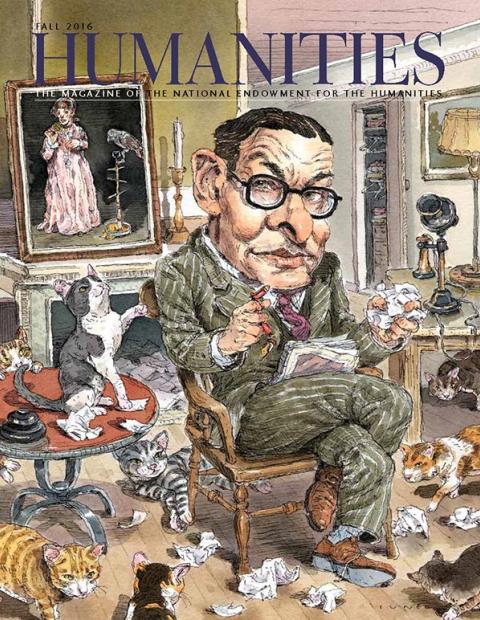In the searing tone that characterizes much of her work, an early poem of Louise Glück’s begins, “There is always something to be made of pain.” Another from the same period acknowledges, “Birth, not death, is the hard loss.” From this darkened stance, she continued for four decades to create lyric poetry that eludes facile attempts to characterize it as confessional or feminist and hews to its own path, which recognizes and discovers a “new species of thought entirely.”
Louise Glück was born in New York City in 1943 and grew up on Long Island, attending first Sarah Lawrence College and later Columbia University, where she studied under the tutelage of poet Stanley Kunitz. “He pushed hard, and he didn’t easily applaud and congratulate. . . . He kept me working like a love slave, you know, and I liked that,” she said by phone.
A job as a secretary afforded her, she thought, a chance to earn her living and write on the side. “I spent a certain amount of time at the beginning of my career,” she said in an interview with poet Peter Streckfus, “thinking poets shouldn’t teach because I basically thought you had to do everything possible to show the fates, forces, gods, that your life was consecrated to art, and anything that distracted you from the pure stream of energy that was going to flow into your work was a mistake.” But after the publication of Firstborn in 1968, she became blocked. Surprised by an invitation from the faculty at Goddard College in Vermont to teach there, she accepted and found she loved working on the problems her students were grappling with. Doing so helped her come to some solutions that plagued her in her own writing, and it cured her writer’s block. “The minute I started teaching, I started writing. It was a miracle,” she’s said. She is now the Rosenkranz Writer in Residence at Yale University, where she was judge for eight years of the Yale Series of Younger Poets.
Glück’s poetry draws on writers from the canon—from Homer and Dante to Wallace Stevens—for creative commentary. Dialog between Odysseus and Penelope plays out provocatively in Meadowlands. À la Dante, the collection Vita Nova embarks on a lyric path reigniting her creative spark. The poem “Legend,” in part a grim portrait of her grandfather, “an immigrant / rolling cigars in a cold basement,” echoes “the roller of big cigars” in Stevens’s “The Emperor of Ice Cream.”
The casual admission “words fail me” in the opening sentence of an early poem, “The Inlet,” can mislead until the reader realizes words do not, in fact, fail the poet at all: “I saw a blind baby try / To fix its fists in tendrils / Of its mother’s hair, and get air.”
As her work took root and blossomed over the decades into its variegated forms, awards and honors rained down steadily on Glück. In 1993, she received a Pulitzer Prize for The Wild Iris. She has also been awarded the National Book Critics Circle Award, the Bollingen Prize, and the National Book Award, among many other distinctions, including having been selected in 2003 as Poet Laureate of the Library of Congress.
“Louise Glück’s poems are sculptures of belief,” Streckfus noted in his introduction at a Lannan Series reading. Her poems can also be viewed as speech-acts, in which the image is less important than the way toward knowing that the poem elaborates. The poem, for her, can transform ideas into facts. Her method is often to argue from the negative: “I, with my inflexible Platonism / my fierce seeing of only one thing at a time.” Poet and critic Frank Bidart has written, “An individual poem’s decisive finality of structure, the accent of fatality characteristic of her lines, testify to seeing ‘one thing at a time’ so profoundly that common seeing by comparison shrivels.”
Tone, form, and structure compose the backbone of Glück’s work. Her poems, she feels, are alive for the reader on the page, more so than when read aloud, and she sees poetry, in comparison with dance, as sequential, meaning for her that it doesn’t require a wide contemporary audience to survive. Her audience, she says, is theoretical. “It’s Blake and Yeats and Eliot, and they’re in their little clubhouse in Paradise, and I want to think of them poring over my words.”


